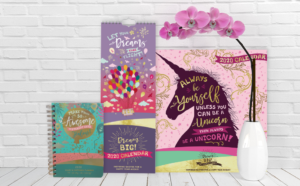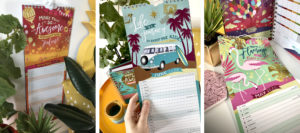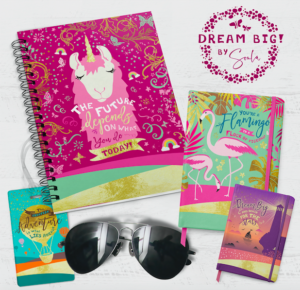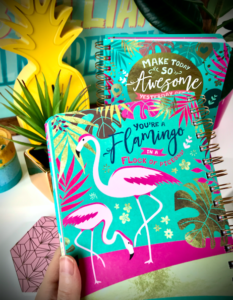Rachel Lowe is the creative mind behind some of the most popular titles in the licensed board game space at the moment and a revered name when it comes to key licenses looking to expand into this ever-growing category.
2019 culminated, for Lowe, with a run of successes, whether it was receiving a joint award from the Toy Retailer’s Association for her work on the hugely popular Jumanji board game, or the launch of her newest compendium of board games and card games developed in partnership with the global entertainment platform, WWE.
But that was so last decade. This year, and with London Toy Fair, Nuremberg’s Spielwarenmesse, and London Toy Fair just around the corner, Lowe will be using the toy fair season to showcase some of the latest brands she has to her ever-growing portfolio. This includes brands, by the way, like Elf on the Shelf and the British comic classic, Beano.
Licensing.biz takes the chance to talk to Lowe about her creativity, her career path into board game design (she started out as a taxi driver), and her passion for developing IP into games.
Hello Rachel… You had another busy and successful year last year, how did your career in board games start, where did it all begin for you?
My career in board games started when I was working as a part time taxi driver to pay my way through university back in 2002. I was out on a shift one night when I stopped at some traffic lights and a thought popped into my head; “Red light – Miss a turn.”
That thought is where it all began.
I imagined my taxi being a miniature playing piece on a board and all the destinations I was travelling to being part of the game play and the aim of the game would be to collect as many fares as possible.If you landed on traffic lights you would pick up a card and this would either be a help or hindrance to your journey and you would have to try not to run out of fuel or lose your licence along the way.The player with the most money at the end of the shift wins.
This game became known as Destination and I started with Destination London and Destination Portsmouth which I launched in 2004 and went on to create over 30 editions including licensed games for Harry Potter, Disney Pixar, London 2012 Olympic Games and Downton Abbey.
My career has taken me on a rollercoaster journey and through this I found the licensing is what I love the most. So I now have a company specialising in licensed board games, puzzles and playing cards.
You have a portfolio of successful games, from the Destination portfolio to all the licensed titles you have worked on. What’s your secret – how do you tap into your creativity?
Well, I love watching TV so that helps! So a good TV series or movie that can translate into a board game is a good place to start. I have to admit to binge watching to get familiar with story lines. Then I sketch out ideas and board layouts. I have certain elements that I will always try and include to make a game work. I then work with designers to take it through the next stage of the creative process. Sometimes I also bring in other talent to help with concept development if we have tight deadlines to work with.
Secondly, what is more rewarding, the development of licensed titles, or cooking up your own?
Having your own IP is definitely rewarding but working with huge corporations such as Sony Consumer Products and WWE to develop products for them is massively exciting.
We work with their style guides to create product in keeping with their branding and it is exciting to see the finished product with my company logo on it for such big brands.
You’ve found yourself being the go to name for licensing and developing licensed titles. Has this been a conscious move on your part? What was the allure? What do you bring to this space, and what do you think this space brings out in your creativity?
I have been very fortunate to work with very established brands early on in my career such as Harry Potter and Disney Pixar properties. I find it easy to come up with ideas for game-play based on the content of the licensed property. I enjoy it and I especially love going behind the scenes for movies and TV series to get ideas for the content for the games. It is an exciting part of what I do and the style guides provide the assets which our designers use to bring our ideas to life. It is a creative process and something I will always enjoy doing.
Growing up, was there a moment that you think put you on course for this life in the toy and games industry?
I don’t know if it was destiny but I do remember a few of significant things from my childhood which evoked a love a board games.
The first was when McDonalds was running a competition. I was with some school friends, I was about 13 years old and we had popped into McDonalds after school. I bought some fries and was given a ‘Who Wants To Be A Millionaire’ Scratch card. I got the answer right and I won a Trivial Pursuit Board Game!
I posted my winning card to claim my prize and a few weeks later this huge parcel was delivered to my house. My dad brought it up to my room which I shared with my sister and I remember opening it and everyone being gobsmacked that I had one such an amazing game.
My second memory was working in a fish shop when I was 14 years old earning £1.20 per hour and saving up all of my wages (which back then was cash in a small square brown envelope). Each week I would take my wage to Woolworths and buy one board game, so one week was Cluedo, the next was Scrabble etc. We already had Monopoly (and of course Trivial Pursuit) but I really wanted my own collection of games.
My third memory was in my art class at school when I was 15 years old. Our teacher Mr Wylie gave us a board game project to do and I remember creating a board game about gardening which I loved working on.
Mr Wylie told me a story about someone who created a game and it got manufactured. I think it had a castle in it. I thought it was the coolest thing ever but never imagined I would one day be creating and retailing my own board games.
I still have all of the games I bought when I was a teenager, including the Trivial Pursuit Game that I won from McDonalds!
What has been the proudest moment of your career so far?
My proudest moment will always be achieving the number one position in Hamley’s of London with my first board game Destination London. It was my first big achievement in the Toy Industry and will always be a magical memory.
What piece of professional or design-related advice would you give to those looking to break into the career you have been so successful?
I would say the best bit of advice I can give is to surround yourself with good people. Focus on the things you are good at and out-source the things that others may do better. You don’t have to be good at everything to succeed. You just need to prioritise and delegate when needed.
Being where you are now, what piece of advice would you give to your younger self?
Oh my, there are so many things I would tell my younger self. But hindsight is something that doesn’t actually change anything and I am proud of everything I have achieved, even my mistakes because I learned so much from all of it. Everything I do now is based on all of my years of experience which is priceless.
What’s the next big project for you?
I have several big projects coming, some are still embargoed. WWE is obviously an exciting one that we have just launched but I also have signed with Elf on the Shelf for 2020 and also Beano.
Rachel Lowe will be exhibiting at London Toy Fair (Stand GH16), Spring Fair Birmingham (Hall 5, Stand 5J60) and Nuremberg, Germany (Hall 10.0 Stand D-20).













